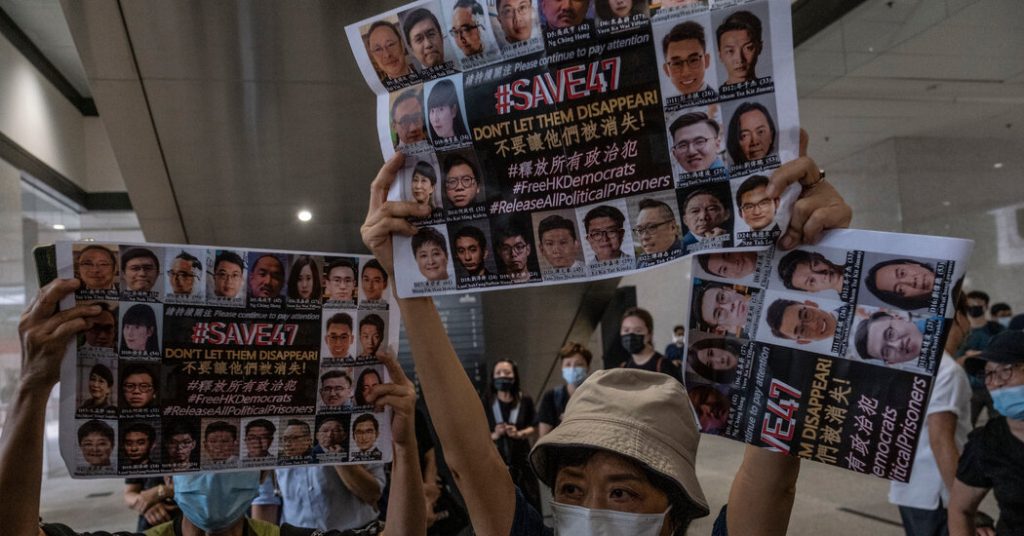A high-profile national security trial is taking place in Hong Kong, where 47 pro-democracy activists and opposition leaders are facing prison sentences, some potentially for life. These individuals held a primary election to improve their chances in citywide polls and are now being charged with conspiracy to commit subversion in relation to their actions. Most of the defendants have been in detention for at least three years, and judges, selected by Hong Kong’s pro-Beijing leader, are now starting to issue verdicts. The convictions and sentences that are expected to follow will effectively turn the vanguard of the city’s opposition into a generation of political prisoners.
The activists being tried had been seeking to defend the rights of Hong Kong residents in the face of increasing control by Beijing. The implementation of a national security law in 2020 provided the authorities with a powerful tool to crack down on dissent, leading to the arrest and trial of the 47 democrats. The charges against them stem from their efforts to organize or participate in an unofficial primary election ahead of a vote for seats on the Legislative Council. The prosecution alleges that the activists were planning to use the election to gain a majority and then veto the government budget, leading to the resignation of the city’s leader.
The legal case against the activists is complex and centers on a scenario that never actually occurred. The defense argues that the primary election was planned openly and nonviolently, and therefore should not be considered an act of subversion. However, prosecutors argue for a wide interpretation of the law to ensure its effectiveness. The drawn-out legal process and lengthy detention have taken a toll on the defendants, many of whom are parents with young children. Despite the personal costs, the trial is seen as a test of the city’s judicial independence and a demonstration of the authorities’ willingness to crack down on dissent.
The outcome of the trial is expected to result in a range of sentences for the defendants, with some facing up to life imprisonment. Legal scholars predict that the defendants will be sorted into different tiers during sentencing, with those considered “principal offenders” facing the harshest penalties. While the authorities may use the trial to make examples out of those who crossed Beijing’s lines, the chilling effect of the trial could ultimately backfire by creating more repression, fear, and self-censorship in the city. Despite the crackdown, the trial is seen as an important moment in Hong Kong’s history, highlighting the ongoing struggle for democracy and individual rights in the Chinese territory.


